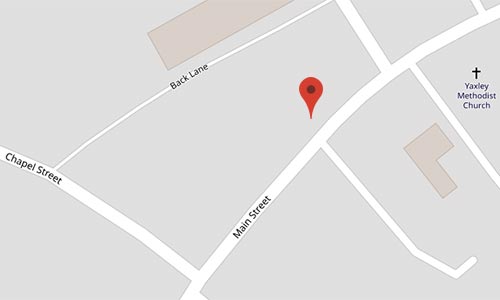For existing NHS patients only
What dental services are available on the NHS? (Existing patients only)
The NHS will provide any clinically necessary treatment needed to keep your mouth, teeth and gums healthy and free of pain.
Decisions about which treatment is appropriate will be based on a clinical assessment and clinical judgement.
Your dentist must make clear which treatments can be provided on the NHS and which can only be provided on a private basis, and the costs associated for each.
How much will I pay for NHS dental treatment?
If you normally pay for NHS dental treatment, the amount you spend will depend on what treatment you need.
Some people do not have to pay for NHS dental treatment.
NHS dental charges
There are 3 NHS charge bands:
Band 1: £25.80
Covers an examination, diagnosis and advice. If necessary, it also includes X-rays, a scale and polish, and planning for further treatment.
Band 2: £70.70
Covers all treatment included in Band 1, plus additional treatment, such as fillings, root canal treatment and removing teeth (extractions).
Band 3: £306.80
Covers all treatment included in Bands 1 and 2, plus more complex procedures, such as crowns, dentures and bridges.
Who is entitled to free NHS dental treatment in England?
You do not have to pay for NHS dental services if you’re:
- under 18, or under 19 and in full-time education
- pregnant or have had a baby in the last 12 months
- being treated in an NHS hospital and your treatment is carried out by the hospital dentist (but you may have to pay for any dentures or bridges)
- receiving low income benefits, or you’re under 20 and a dependant of someone receiving low income benefits
Low income benefits
You’re entitled to free NHS dental treatment if you or your spouse (including civil partner) receive:
- Income Support
- Income-related Employment and Support Allowance
- Income-based Jobseeker’s Allowance
- Pension Credit Guarantee Credit
- Universal Credit (in certain circumstances)
Certificates to help with health costs
You can receive free NHS dental treatment if you’re entitled to or named on:
- a valid NHS tax credit exemption certificate
- a valid HC2 certificate – which is available for people on a low income
- a valid maternity exemption certificate
People named on an NHS certificate for partial help with health costs (HC3) may also get help.
People on a low income can include some students and pensioners.
You’ll be asked to show your dentist written proof that you do not have to pay for all or part of your NHS treatment.
You’ll also be asked to sign a form to confirm that you do not have to pay.
How do I complain about my dental treatment?
Complaining about NHS dental treatment
If you wish to make a complaint about a dentist or dental practice, try to resolve it directly with them first. Contact the dental surgery’s practice manager with details of your complaint. You can complain in writing, by email or by speaking to someone.
Your complaint must be made within 12 months of receiving treatment.
If you would rather not go directly to the practice, you can contact NHS England, which is responsible for NHS dental services.
If you’re not happy with the way your complaint was handled – either by the dental practice or NHS England – you may wish to contact the Parliamentary and Health Service Ombudsman (PHSO).
The PHSO makes the final decision on complaints that have not been resolved by NHS England. You can call on 0345 015 4033 or use the PHSO’s secure online form to raise your complaint (this only applies to NHS services in England).
You can find further information and support for making a complaint from:
- a hospital’s Patient Advice and Liaison Service, if your treatment was carried out in a hospital
- Citizens Advice
- the Care Quality Commission (CQC)– the CQC does not settle individual disputes, but your feedback about a practice helps it to decide when, where and what to inspect
Complaining about private dental treatment
If you wish to make a complaint about private dental services, contact the practice manager of the private dental surgery. Your complaint must be made within 12 months of receiving treatment.
If your complaint is not resolved satisfactorily, you may want to consider contacting the General Dental Council, which sets standards of conduct and regulates all dental professionals in the UK. It may be able to investigate your concerns.
You can also contact the Dental Complaints Service on 020 8253 0800 (Monday to Friday, 9am to 5pm) or visit its website for more information.
Keeping your NHS dental registration
Many of our patients forget to make regular visits to see their dentist. And then, before they realise, it’s been nearly two years!
Due to the high number of people wishing to receive NHS dental treatment and the very long waiting lists, we have no choice but to de-register patients who have not attended for two years or more.
In our practice, we try to remind our patients when they are due for their dental examinations via text message and email. However, we often find that many of our communications get returned as patients do not update their details with us.
Failing to attend an appointment or Late Cancellations
If you have to cancel your dental appointment please give at least 24 hours notice.
If appointments are failed or cancelled with insufficient notice for a second time it will be at our discretion whether you will be seen as a patient at our practice again.







